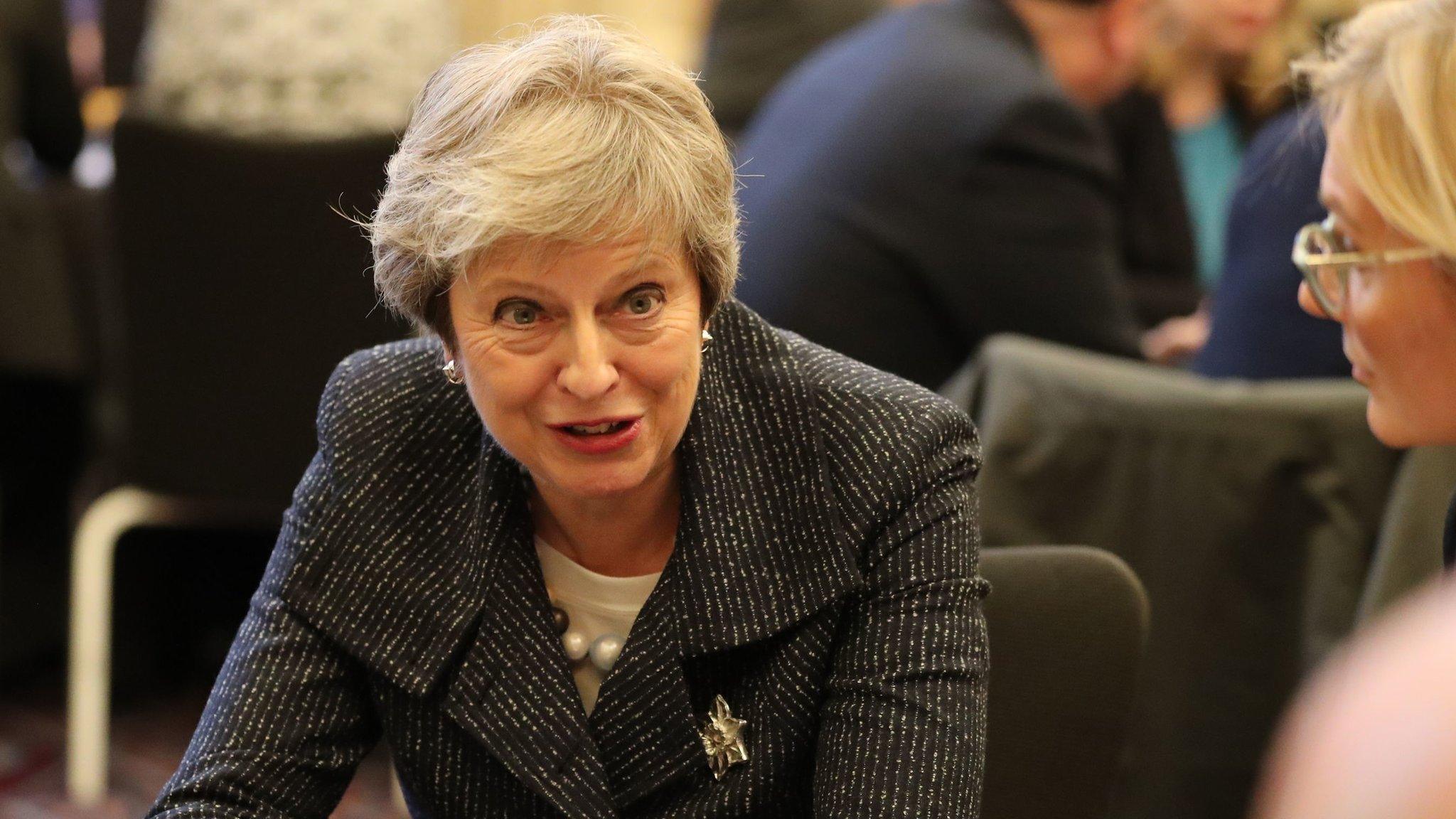Brexit and sellers of fish
- Published
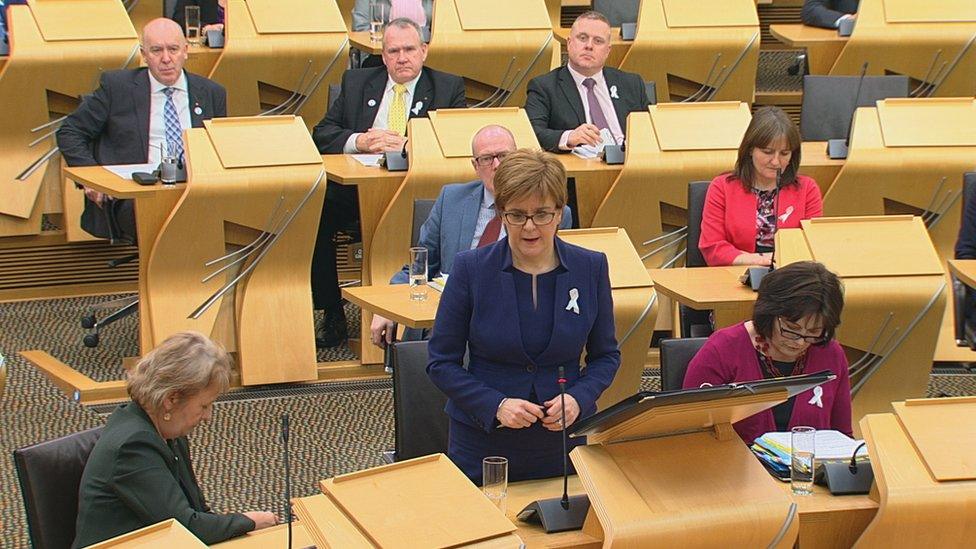
Ms Sturgeon has predicted that the UK government will "sell out" the Scottish fishing industry as it seeks post-Brexit trade deals
Words, words, words, bemoans Hamlet, in conversation with the garrulous but inconsequential Polonius, whom he labels a "seller of fish".
Given that the Prince of Denmark is himself legendary for vacillation and inaction, this always seemed a mite cheeky to me.
We had a superfluity of words at Holyrood today, although, unfortunately, the rhetoric fell a little short of Shakespearean.
Nobody was quite as gloomy as the dithering Dane but the opening topic was suitable to Polonius' alter ego. It was fish.
Jackson Carlaw, he of the Tories, decided to pursue the route "courageous" (c, Yes Minister). He challenged the first minister to endorse the fisheries aspects of the deal struck by the PM with Brussels.
Given that Nicola Sturgeon - and many others - had already condemned said fisheries deal as a "sell out", it seemed he was unlikely to succeed. And so it proved.
The two swayed back and forth, linguistically. Mr Carlaw said that the alternative to the PM's deal was the SNP option of remaining in the EU - and thus the Common Fisheries Policy.
Ms Sturgeon reminded her interlocutor that he too wished to remain (or Remain) in the EU - and thus the….you've got the concept.
Each, therefore, exposed a potential weak flank of the other. The SNP say they would reform the CFP from within - without explaining precisely how they would persuade the other members of the EU.
Tory Remainers now seem to be talking up the glorious opportunities of Brexit - the PM herself was at it yesterday - while deftly eliding the fact that they argued precisely the opposite during the 2016 referendum.
Of course, each in truth is attempting to fight the battles of the past, while simultaneously facing the contemporary conflict.
Yes, the SNP has addressed questions in the past about fishing - but is now seeking to counter the broader economic challenges of Brexit, as they see them.
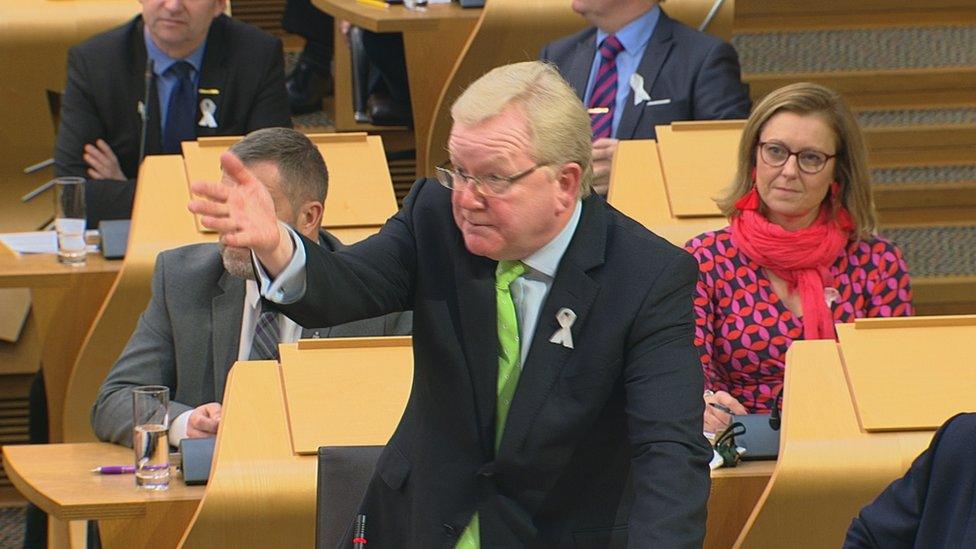
Mr Carlaw accused the SNP of "pompous outrage" over fishing
Yes, Jackson Carlaw and Ruth Davidson and indeed Theresa May were Remain campaigners and thus prepared, presumably, to tolerate, at least, the CFP. But now they are all seeking to adapt to the reality of the present circumstances.
Fishing, however, provides a challenge to both parties - although, most immediately, it is a difficulty for the Conservatives, given the EU's adamant insistence that there would be a trade-off between access and markets as part of a broad economic deal. (Just try it, responds Mrs May.)
Perhaps Ms Sturgeon secretly yearned to say that, whatever happens to the fishing fleet, the bigger question is the billions which her government estimates will be stripped from the wider Scottish economy under a range of Brexit scenarios.
Historic legacy
But fishing is important in itself to the Scottish economy. It is particularly important in a handful of key seats, contested primarily by the Tories and the SNP. And there is, too, an historic legacy of empathy for those in peril on the sea.
Hence its occasional predominance in this Brexit debate, and not just in Scotland.
As the debate see-sawed inconclusively (welcome to Brexit) each resorted to mild insult. Mr Carlaw detected "pompous outrage" among the SNP.
He flailed an arm in the general direction of the front bench. Sundry Ministers glanced round in wild surmise. Did he mean me? Say it isn't so.
Then Ms Sturgeon had a go. She told Mr Carlaw that the redder his face got, the more he landed in trouble. The interim Tory leader smiled, roseately.
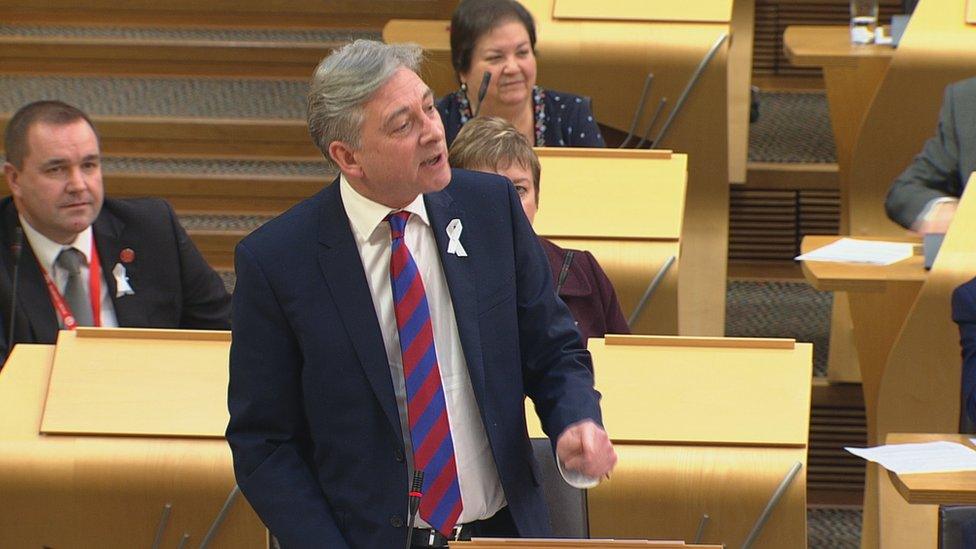
Richard Leonard raised a report into the financial challenges facing councils
For Labour, Richard Leonard pursued the issue of cuts to local council budgets, bouncing in exasperation as he listed each bullet point depicting Ms Sturgeon's supposed dereliction of duty.
He bolstered his case rather effectively with an example of an individual family, fretting about services.
This is, of course, all but impossible to address. Ms Sturgeon, entirely understandably, returned to the general, while voicing sympathy for the particular.
This issue of public spending will of course return to the fore again with the publication of the draft Budget at Holyrood on 11 December.
That is the day after the meaningful vote (sorry, Meaningful Vote) in the Commons. On Brexit. That issue is very, very far from exhausted. And so it proved at Holyrood today.
Verbal jousting
And the FM wasn't finished with her verbal jousting either. Indeed, she called Willie Rennie "silly". Mr Rennie looked momentarily discombobulated.
Only for a few seconds, though. You don't become leader of the Scottish Liberal Democrats without having your intellect or character or both questioned from time to time. And I expect he's been called much worse in Fife.
So he persisted. Why, he asked, was the first minister prepared to strike a compromise with the prime minister? It was Ms Sturgeon's turn to look put out. Had she missed something?
Mr Rennie persisted in arguing that she should not be prepared to settle for Norway-style relations with the EU. She should hold out firmly for a second referendum and thus remaining in the EU.
Now Ms Sturgeon has the zeal of the convert when it comes to EURef2 (aka, a People's Vote), albeit she continues to lodge a query as to what happens if Scotland again votes Remain and the UK as a whole votes Leave.
But she was not prepared to take a lecture of this nature from Mr Rennie, despite his longer pedigree in backing a PV.
Offering, rather cheekily, to speak more slowly, she insisted it was entirely right to maintain an alternative option should the People's Vote plan fail to win support in the Commons.
And then they subsided, all passion spent. But, unlike in Milton's Samson Agonistes, it seems unlikely that our political tribunes will be calm of mind, any time soon.
- Published27 November 2018
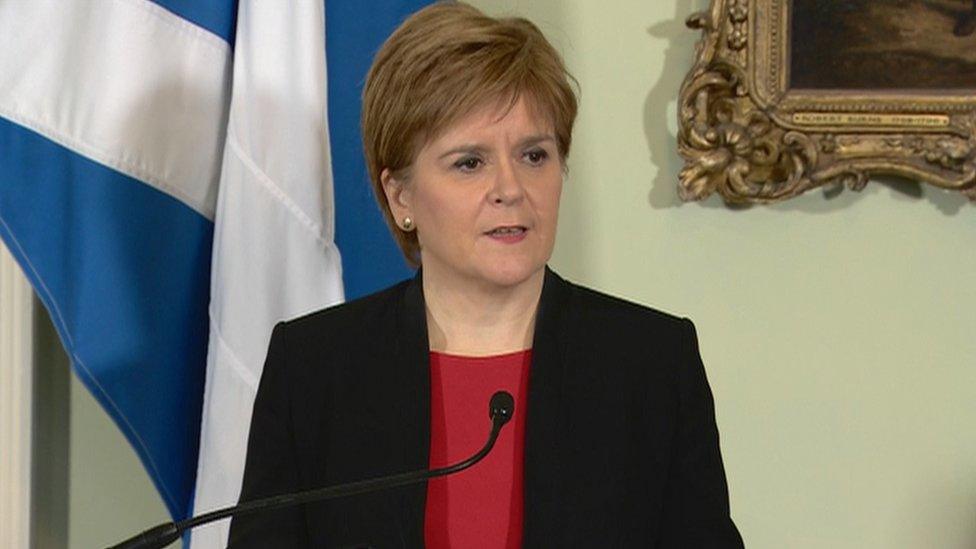
- Published27 November 2018
